The rising tide of anti-Semitism is dangerous, a crisis that poses a test of Labor’s morals
There can be no toleration of one community engaged in intimidatory actions against another, and this is what is happening. Pretending it isn’t is untenable and the path to stacks of trouble for the Labor Party.
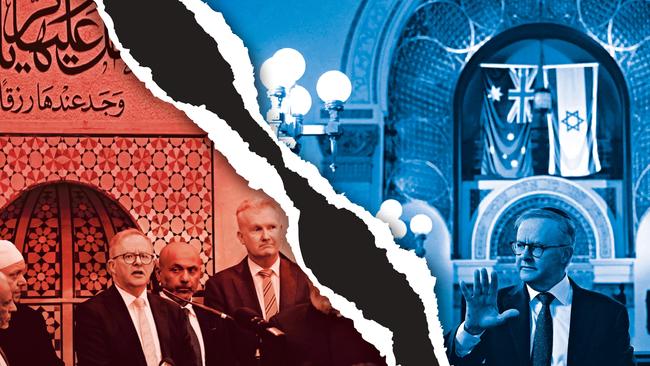
For Australia this is a moral and civilisation question. Yet it has not been treated as such. Indeed, the impression conveyed is that the best approach is to call for restraint and manage the domestic politics in an “even-handed” way. But this misconceives the situation – the events of the past six weeks suggest Australia is changing, perhaps fundamentally, as a country.
Anti-Semitism is revealed to be implanted more deeply than most people realised. It is buttressed by political and cultural changes – hostility towards Israel is endemic across a coalition of the left and pockets of the right, the entire infrastructure of the Greens, left protest groups, sections of the teals, the Palestinian movement, much of the ALP Left and pervasive parts of the education sector reinforced by the ideology of identity politics.
The forces are many and varied, yet coalescing. The outlook stretches from indifference towards Israel to humanitarian rejection of its military campaign against Hamas to hatred of Israel and agitation for its eradication. It has been building for years and is now a direct threat to multiculturalism and the complacency that surrounds it. The Labor Party has been more than flat-footed. It cannot fathom how to respond.
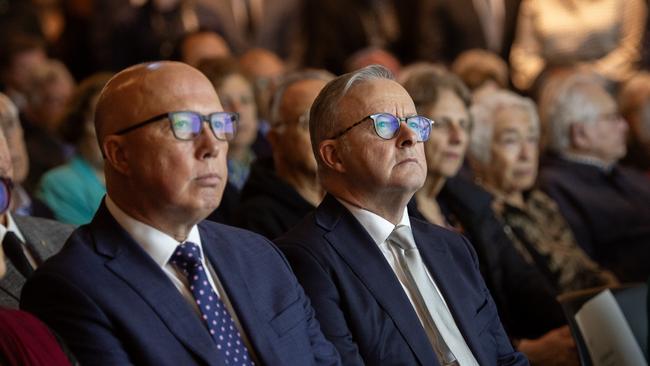
In Melbourne this week both Anthony Albanese and Peter Dutton spoke at the opening of the Holocaust Museum with the Prime Minister conceding anti-Semitism “is on the rise” and pledging he would not let it “find so much as a foothold” in Australia.
It is an important declaration, 46 days after the Hamas assault. The problem, however, is that anti-Semitism seems to be have escaped from our political and police leaders. Maybe that is about to change. But it has exploded across a wide front, in public and private. The foothold is already established. There are numerous campaigns under way to target and boycott Jewish businesses.
The Albanese government seems both divided and not to understand the unprecedented nature of what is happening – or if it does understand then Labor’s character and electoral base has changed such that it cannot command the moral and political leadership needed at this time.
Labor needs to be beware. Many Australians watching the Free Palestine marches and protests, the anger, the flags and the chants are thinking: “This is not my country”; “It is not the Australia I know”; and “Nobody told us multiculturalism would end here.”
If Labor ministers cannot hear this, they are deaf to the views of much of the country – once again, it is the people who have no organised voice. These people are Labor’s problem.
In the latest protest – Thursday’s schoolkids demonstration in Melbourne – some young students praised or excused the barbarism of Hamas, denying Israel’s right to exist, with Greens education spokeswoman Penny Allman-Payne, encouraging the strike, accusing Israel of “massacre of Palestinians” and demanding a “permanent ceasefire”. The Greens spearhead the anti-Israel activities.
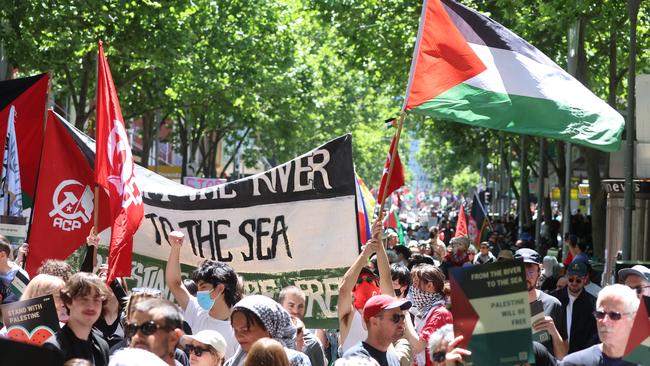
Prominent Jewish Liberal MP Julian Leeser says: “Anti-Semitism is now a full-blown feature of the extremist-Greens political ideology” and represented “a danger to Jewish Australians and all Australians who value freedom”. He said the Greens were more racist and more dangerous than One Nation.
Leeser tells Inquirer Jewish students are now intimidated at universities and face an “appalling environment” on campus, brands some university leaders as “quislings” and says students are now afraid to identity as Jewish. He wants an independent inquiry into anti-Semitism at universities.
Last month respected former Liberal deputy leader and former treasurer Josh Frydenberg said: “As a person of Jewish faith growing up in a tolerant and multicultural Australia I never thought I would feel, as my grandparents did in 1933, the rising tide of European anti-Semitism which would consume their families in the flames of the Holocaust. But now I do. I am anguished and anxious about the future.” Frydenberg has no grounds to be reassured since he gave that speech on October 19.
Former Australian ambassador to Israel Dave Sharma, the former Liberal MP for Wentworth, the seat with the strongest Jewish population in the country, tells Inquirer: “I think this is the most serious outbreak of anti-Semitism that we’ve seen in Australia, certainly in my lifetime and I suspect in Australia’s history. This is textbook anti-Semitism. It is holding the Jewish community in Australia responsible or culpable for the actions of the state of Israel. We don’t allow this to happen to any other community.
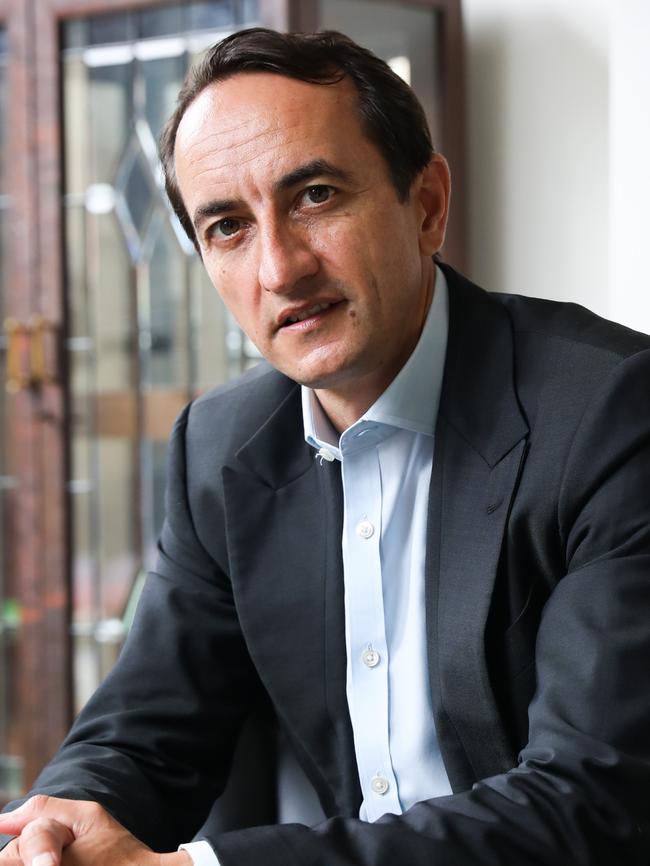
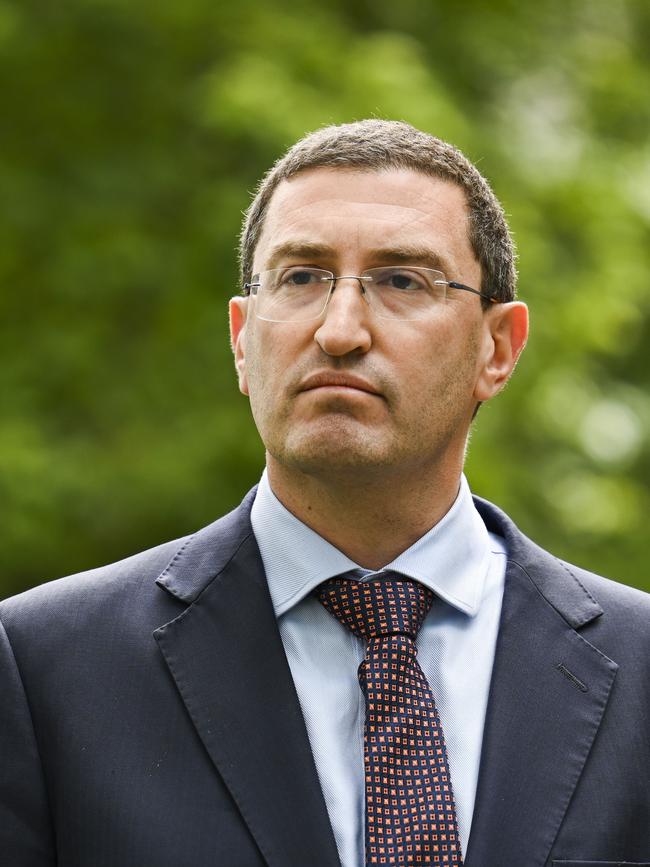
“We don’t hold Australian Muslims responsible for the actions of al-Qa’ida or the Taliban, nor should we. We don’t hold Australian Arabs as responsible for Bashar al-Assad’s massacre of tens of thousands of his own people in Syria. So why do we think it is OK that Jewish Australians should be targeted in this way? I think this is unprecedented in this country.”
Sharma says his fear is this behaviour will become the new norm: “I think the failure of our political leaders to condemn this strongly and resolutely enough – by speaking out of both sides of their mouths – means we’ve effectively given our tacit consent to these sorts of protests. We’re allowing this form of protest to become normalised in Australia.”
He says of the repeated chant of the protesters: “The slogan is ‘From the river to the sea, Palestine will be free’ – and the only meaning of that, as is well known by its proponents, is the eradication of the state of Israel and abolition of the Jewish community in its ancestral homeland. It is advocating a one-state solution, advocating for the creation of a single sovereign entity west of the Jordan river. That means the state of Israel would cease to exist and the Jewish majority in the state of Israel would cease to exist. It is effectively calling for a form of genocide.
“It is calling for the abolition of a member state of the United Nations, which Australia supported when it was first put to the UN General Assembly. This is Hamas language; it is terrorist group language. It is the language the government of Iran would use. Groups fully committed to the destruction of the state of Israel use this language.”
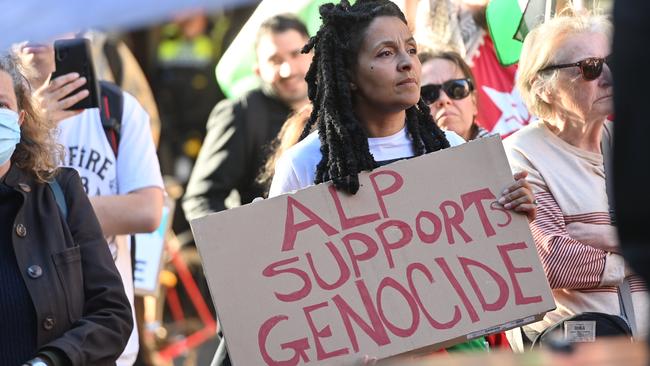
Leeser tells Inquirer: “I cannot recall a situation in living memory where a terrorist attack has occurred and the people who are relatives, friends and family of the victims have been the subject of hate speech and protest. Imagine it’s 9/11 and we see people outside the US consulate protesting against the American people.
“That’s what the equivalent would be. This is the most serious and intense outbreak of anti-Semitism that I can remember in my lifetime. The Executive Council of Australian Jewry collect reports on anti-Semitism and incidents of anti-Semitism have been increasing over the years. But the flashpoint of the terrorist attacks on October 7 have unleashed a wave of anti-Semitism in Australia the likes of which we haven’t seen.
“You had the terrible protests in Sydney at the Opera House, you’ve had the conveys of hate through the eastern suburbs of Sydney, you’ve had the events at Caulfield in Melbourne, the intimidation of Jewish communities in Australia. You’ve had people holding signs comparing Jews to Nazis, putting on signs Stars of David in rubbish bins, Jewish students at university asking to take exams at home because they feel unsafe at campus.
“The situations at universities has now reached a real flashpoint. Not only are Jewish students afraid to wear a kippah or the Star of David but they are afraid to even identify as Jewish. They believe complaints to the universities are not taken seriously.
“The quisling leaders of some of our universities need to take a good long look at themselves, particularly those universities who refuse to sign up to the International Holocaust Remembrance Alliance definition of anti-Semitism which includes illegitimate criticism of Israel as a form of anti-Semitism that needs to be called out.”
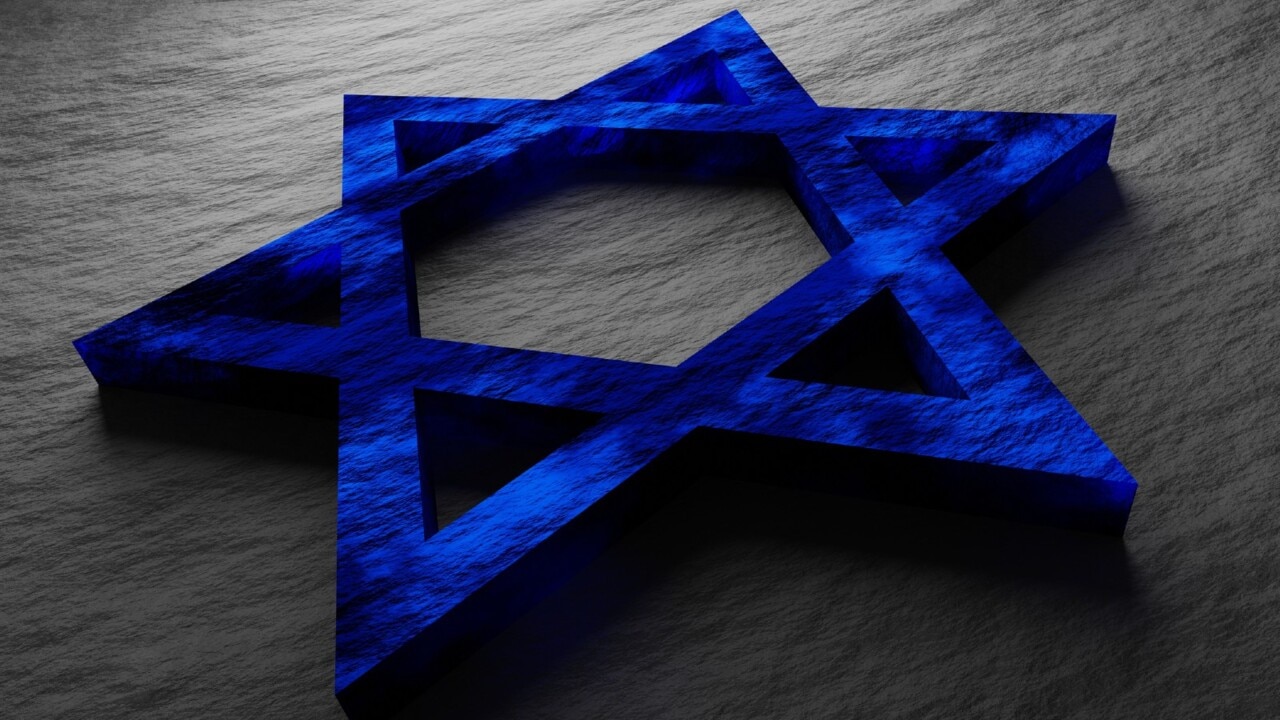
In his speech Albanese denounced the Holocaust and said the meaning of the museum was expressed in the words: “Never again.” Memory, he said, must be “carefully tended and nurtured”. He said for the Jewish people the Holocaust “is not softened by the passing of time” and “it does not recede into history”.
Albanese said: “Since the atrocities of October 7, Jewish Australians have been bearing a pain you should never have had to bear again. And you are feeling fear. Anxious that the long shadows of the past have crept into the present. That should not be happening in a land that offered refuge then – and embraces you now.”
The Prime Minister quoted Holocaust survivor Peter Gaspar, who lost 40 members of his extended family: “The Holocaust didn’t start with gas chambers and murders and executions. It started with stereotyping, prejudice, discrimination, hate speech.” He said these words should heeded “every day”. Albanese was eloquent, genuine and stood with Jewish Australians. This was probably his clearest statement of support since October 7. Whether it captured the gravity of current events, as distinct from the invoking the evil of the Holocaust, is debatable.
His speech was conspicuous for the absence of any full recognition of what is happening in Australia now, the nature, scale and breadth of the abuse, the threats and damage being inflicted on the Jewish community. Maybe it wasn’t the right forum. But where is the right forum?
One of Australia’s most prominent Jewish figures told me: “Nobody is OK. It has never been like this. People are scared. I think every red line has been crossed. It took just 24 hours for anti-Israeli sentiment to turn into anti-Jewish sentiment. It is the political forces now aligned against us.”
There is a sense of an open season on attacking Israel. More important is the inadequate response of political leadership. The so-called rhetoric of multiculturalism doesn’t work in this crisis – being even-handed all around, the ritual of ensuring criticism of anti-Semitism is linked with criticism of Islamophobia. Albanese and Foreign Minister Penny Wong have regularly adopted this approach. And there can be no objection to such statements of principle. But how does this address the situation of Australia today?
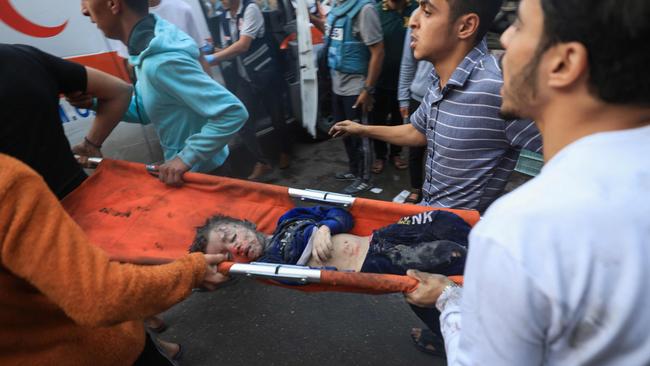
Of course, the politics are difficult. The Palestinian community is outraged by the mass civilian deaths from Israel’s military campaign to destroy Hamas and the Israeli community is outraged by the barbaric assault on its civilians on October 7. Wong has made a specialty of calling for restraint. And restraint is important. But this is a moral crisis and goes to the enforcement principles of Australian multiculturalism. There can be no toleration of one community engaged in intimidatory actions against another community. And this is what is happening. Pretending it is not happening is untenable and the path to stacks of trouble for the Labor Party.
Pro-Palestinian protests are completely legitimate. What is not legitimate is protesting behaviour designed to promote hate, parade anti-Semitism and promote an identity-based zero-sum cultural grievance in Australia, one community against another. The complete failure of Islamic leaders in this situation is apparent.
This raises several political questions. Is Labor reluctant to confront the unprecedented nature of the anti-Semitism now on display because it feels that will only further agitate the Muslim population? Does it maintain the political formula of being even-handed to protect the Muslim vote in ALP seats? People are asking these questions.
Leeser was keen to say there was no problem criticising the Israeli government. That government of Benjamin Netanyahu, of course, is far right-wing, has been bent on marginalising the Palestinian issue and now faces the dilemma of having to address the future political complexion of Gaza. Yet the anti-Jewish protest movement has not focused on the Netanyahu government – its focus is on the state of Israel, its alleged racism and genocide.
This movement, entrenched across Britain, the US and Australia, is heavily shaped by the ideology of identity politics that divides the world into two groups – the “white people” who are colonists and are responsible for most of the world’s evils; and the victims, the “people of colour”, the targets of racism and genocide, with the Palestinian people now the frontline of victims and Israel the frontline of oppressors in this identity ideology.
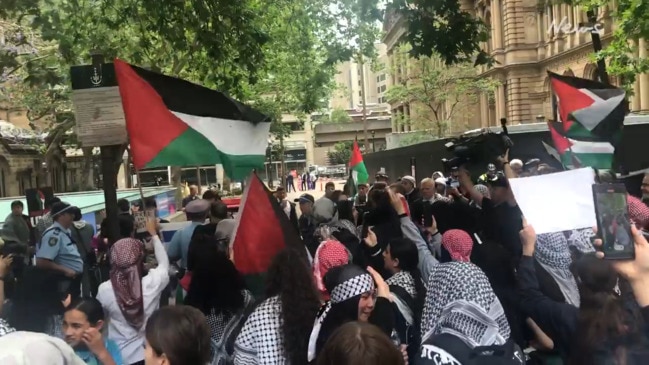
Such flawed stereotyping might seem incredible to a rational person. But it’s not, it’s happening, it’s the ideology and language now being deployed. It’s one reason the situation is dangerous.
Australia’s mistakes over the past six weeks have been grievous. Fifty years from now when global history books are published about the events of October 7 Australia will be featured and shamed for the Opera House protest.
Leeser says: “I think the failure to have any arrests after the Sydney Opera House incident, to have anyone charged at all, basically green-lighted all the behaviour and protests since then. If people could get away saying ‘Gas the Jews’, saying ‘F--k the Jews’ and ‘Kill the Jews’, with no consequences, that basically said to protesters: ‘Just go for your life.’ ”
This failure has had a profound impact on NSW Premier Chris Minns, who has taken the firmest line against anti-Semitism ever since. Most ALP figures have conspicuously avoided following the Minns hard line. Yet it seems to be having an impact on the NSW police after their ignominious tactics of allowing hate protests to proceed as the apparently best means to avoid violence.
Last week NSW police arrested and charged 23 people from a protest at Port Botany in Sydney directed at the unloading of an Israeli ship. The organisers were a mix of the Palestinian Justice Movement and pro-Palestinian unionists. Minns defended the police action while Commissioner Karen Webb said many of the people involved were “professional protesters”.
Sharma criticises the response overall of the Albanese government, saying: “I don’t think you can escape the conclusion that Labor is formulating its position entirely through the prism of domestic politics. It plays first to the progressive green-left base in the inner cities and, secondly, to the large communities predominantly in western Sydney that have natural sympathy for the Palestinian cause.
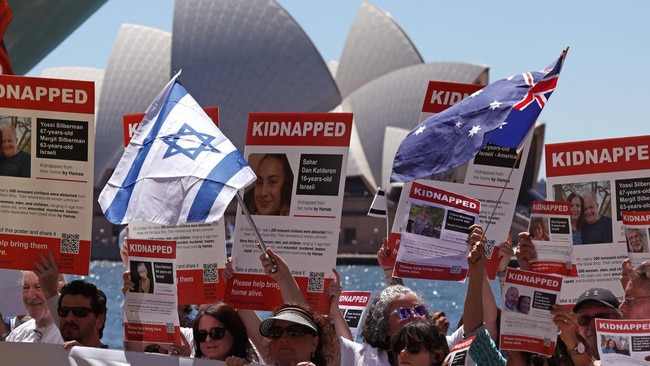
“Some Labor ministers have been most outspoken on this but it’s not the right or responsible thing for a government that is meant to be governing for all Australians.”
Many Labor figures believe their political response to the domestic tensions has been justified and well judged. Albanese is extremely sensitive to any suggestions of inadequate leadership and failure to properly support the Jewish community.
The reality, however, is that Labor must hope the expected temporary ceasefire in Gaza and hostage release will signal some slowing in the war’s tempo and a reduction in the military campaign. Otherwise, Australia faces the prospect of ongoing divisions, protests and community rancour.
The warnings from Leeser and Sharma could not be more explicit or serious – if their reading of the situation is correct then Labor – with Albanese and Wong in the vanguard – is at risk of making a major miscalculation.
Sharma says the level of anti-Semitism won’t just be about the Jewish community.
He says: “We are tolerating protests that go beyond support for a particular political opinion and cross the line into demonisation, harassment, intimidation and installation of fear into another group of Australians. It might be Jewish Australians today. It might be another group of Australians tomorrow, of some other religion or ethnicity or identity.
“This is tearing at the social fabric of Australia. If we allow this to happen to the Jewish Australian community which is a long-established, credentialled and productive part of our community, what does this mean for other communities?
“The risk is we are effectively destroying the multicultural compact in Australia.”





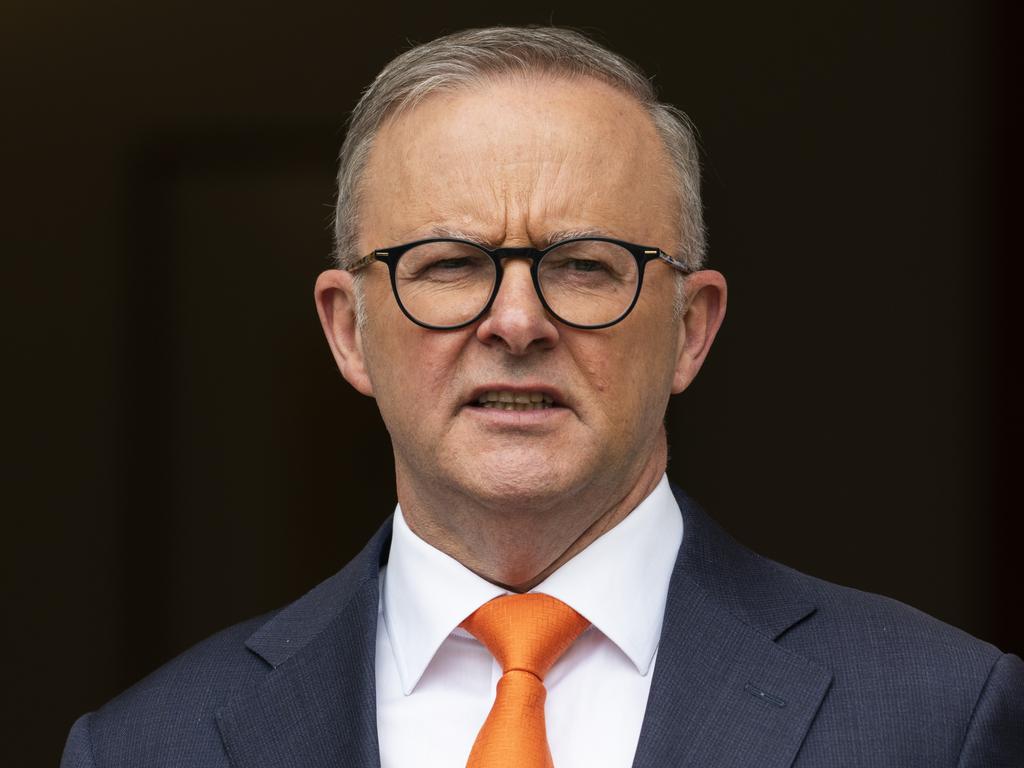


The anti-Semitism infecting Australia along with many other Western democracies is a more serious manifestation of an ancient, almost an eternal prejudice, but too many Australian leaders have failed to recognise the unprecedented threat it poses to our societies.